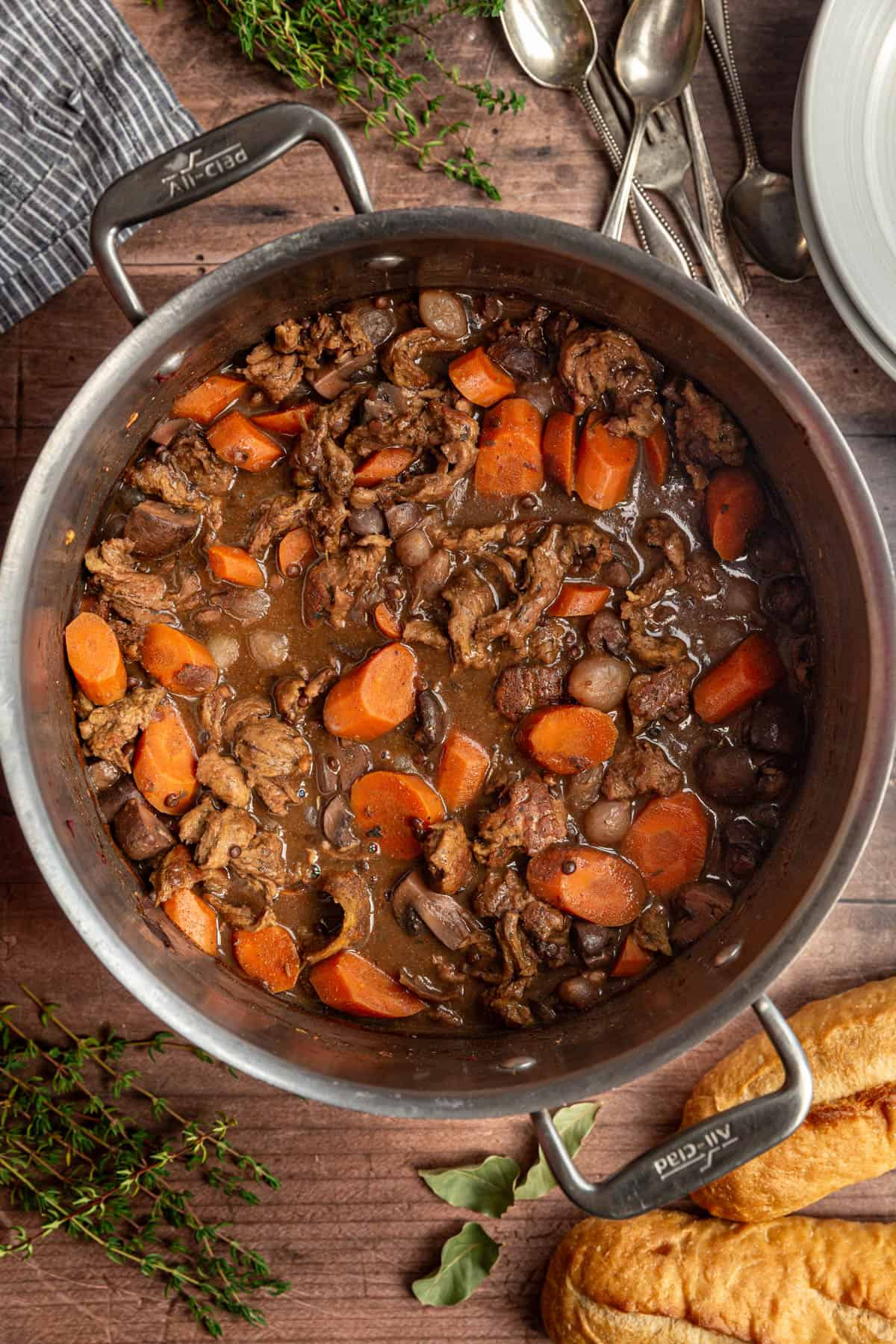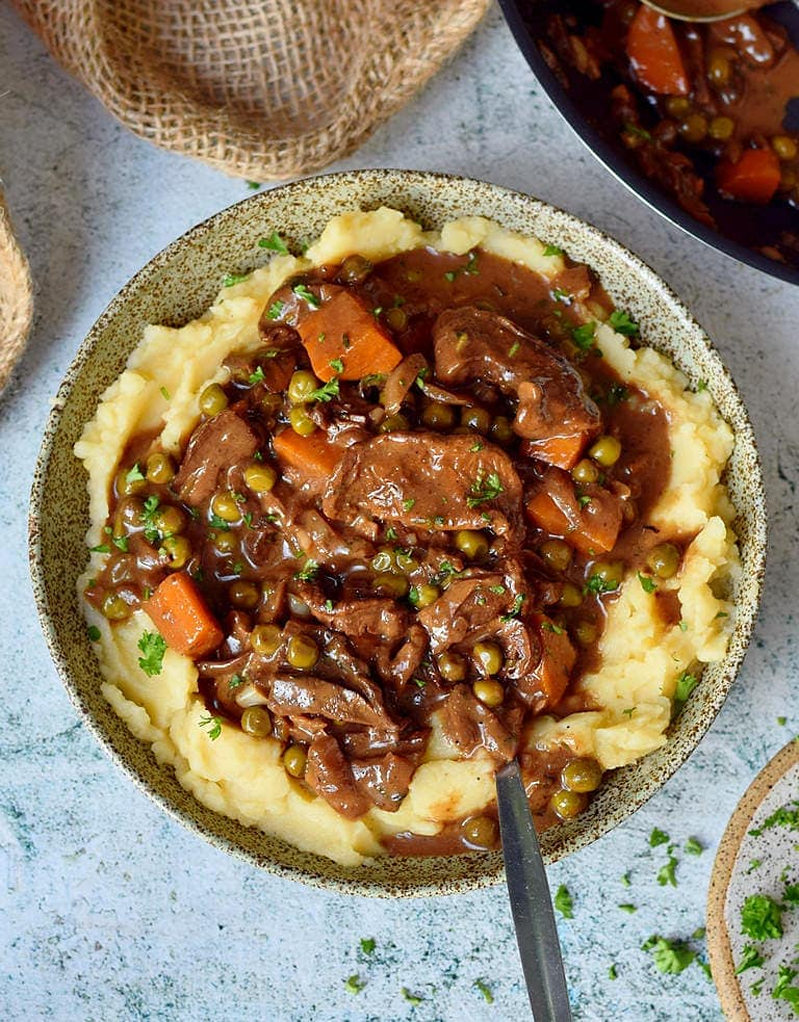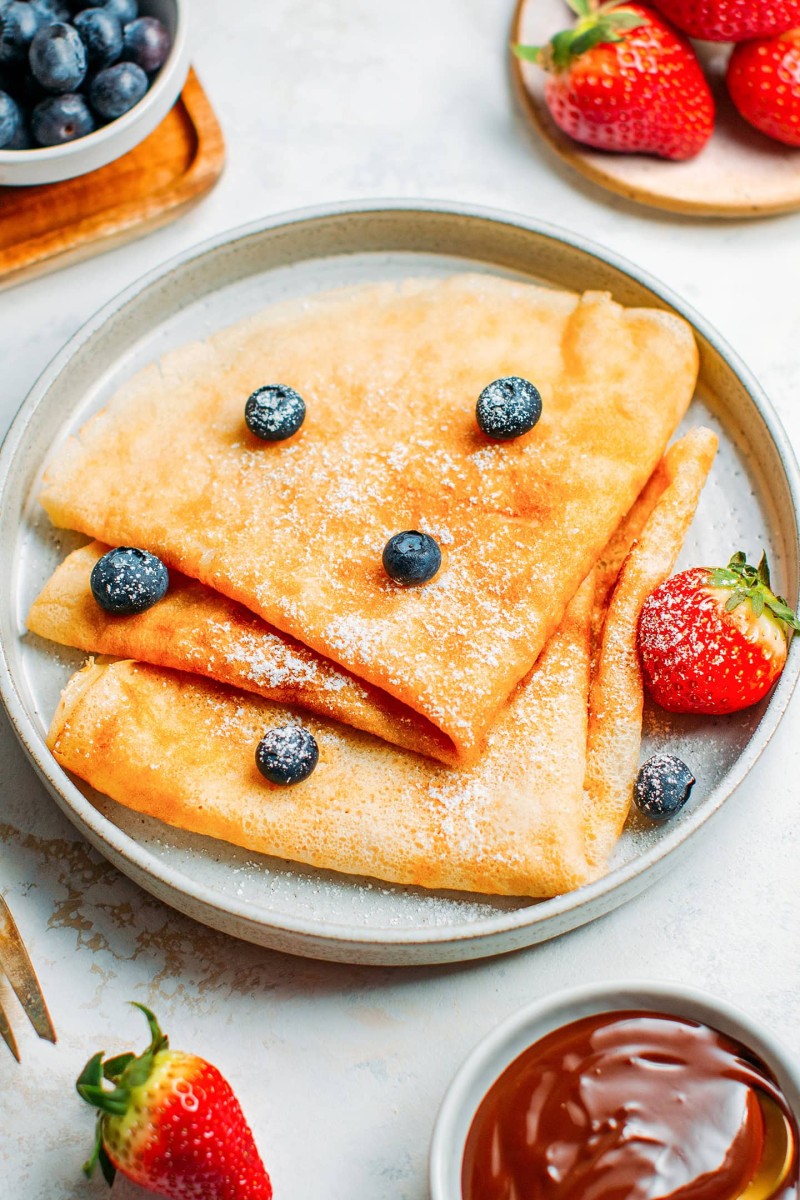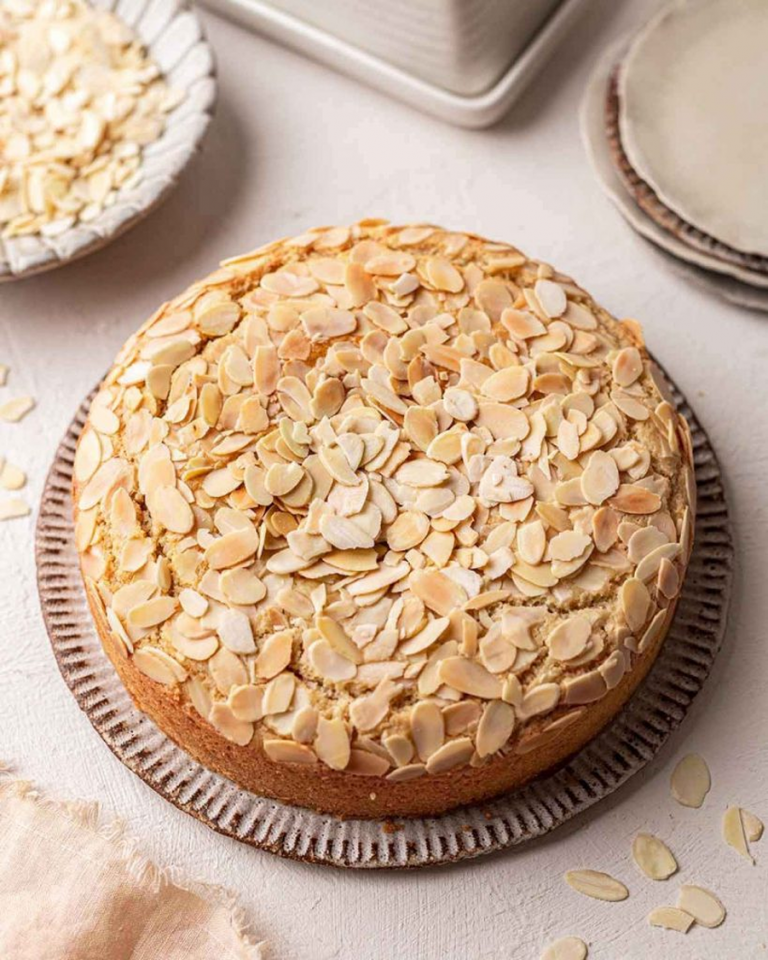
Years ago, a vegan travel writer talked of an English tourist visiting France. He was asked if he had anything to declare. He replied ‘only my veganism’. The customs officer replied ‘Then I advise Monsieur, that you turn back’.
Today things are more hopeful. Many top chefs (with Michelin stars) have gone vegan and are boycotting foie gras. In fact, if you take out the meat and cheese, French cuisine is fairly plant-based anyway with lots of fresh fruits and vegetables.
This vegan coq au vin (At Elizabeth’s Table) is made with seitan (wheat meat) to replace the beef. Elizabeth is a Catholic, who offers a prayer at the end of each recipe:
Thank you God for this coq au vin. Thank you for French cuisine and vegan versions of our favourite recipes. Amen.
Before cooking, read up on food safety for people and pets (many ingredients like onion, garlic and mushrooms are unsafe near animal friends).
French cooking uses a lot of garlic and onions. Like citrus fruits and rhubarbs, just bin allium scraps (garlic, onion, shallots, chives, leeks), as acids could harm compost creatures.
Unlike how the media portrays, French people don’t guzzle bottles of wine, smoke endless cigarettes and eat fancy cakes all day. They practice moderation in a country where (like it or not) it’s frowned on to get overweight, and lounge around in jogging pants all day.
When French women living in London are asked how they stay so slim and healthy, they remark they would never dream of devouring an American-sized muffin. Like Italy, French petrol stations don’t sell aisle of crisps and chocolate bars.
French Ratatouille

This Ratatouille (Ela Vegan) is simple to make, a combination of summer vegetables (aubergine, courgettes, peppers and tomatoes) cooked slowly to soak up herbs like thyme and basil.
Mushroom Bourguignon

This plant-based twist on beef bourguignon uses mushrooms for a meaty texture and rich taste. Slow cook mushrooms with red wine, carrots, onions, and garlic until everything is soft and saucy.
Serve over vegan mashed potatoes or noodles for a warming supper. It’s a dish that’s full of depth, and perfect for colder evenings.
Pissaladière (onion tart)

Pissaladière is a classic onion tart from the south. For a plant-based version, skip the anchovies (fish) and pile slow-cooked caramelised onions on top of a thin pizza-style crust. Add olives and fresh thyme for that Provençal touch. This tart is delicious hot out of the oven, or served at room temperature as a starter or snack.
Keep fresh dough away from young children and pets (and onions, toxic to animal friends).
Vegan French Onion Soup

Skip the beef broth, and try this warming soup made with lots of vegetables and fresh thyme, topped with a vegan cheese baguette!
The Rise of Vegan Foods in France

Full of Plants is a world-famous food blog, by Thomas (he’s French!) and his Vietnamese wife.
France is famous for dishes rich with meat, butter, and wine. But a quiet shift is reshaping tables from Paris to Provence. Vegan options, once a rarity, are now easy to find and often celebrated.
Menus in cafés, brasseries, and market stalls show the change. Plant-based plates sit beside long-loved classics. People want food that supports health, the planet, and animals, without losing French flavour. Since 2014, the share of people who identify as vegan has climbed, reaching around 2 to 3 percent by 2025.
Marie Laforêt is a young lass in France, who is kind of like their answer to a vegan Delia Smith, having written several best-selling cookbooks, some translated into English. She also runs a training course for food photographers.
Why Vegan Foods Are Gaining Ground
Health comes first for many. People want food that supports heart health, healthy weight, and long-term well-being. Plant-based diets are linked to lower risks of heart disease and type 2 diabetes. In a country that values quality produce and technique, this health focus meshes well with fresh fruit, vegetables, grains, and legumes.
Environmental concerns add weight. France has firm climate goals, and food systems are part of the picture. Meat production uses land and water, and it emits greenhouse gases. Shifting some meals to plants supports national targets and local projects. It also appeals to shoppers who want lower impact daily choices.
Animal welfare matters too. In France, policy has backed sustainable farming, with grants for plant-based research and support for protein crops like peas and fava beans.






